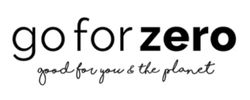Your Cart is Empty
**FREE (PLASTIC-FREE) SHIPPING OVER $89 IN AU | $9.95 FOR AU ORDERS BELOW $89**
Menu
-
- BRANDS
- New
-
A - E
- Activated Eco
- Aleph Beauty
- Amavasya Healing Store
- Archer Eyewear
- Baby Quoddle
- Banksia Pods
- Bare and Boho
- Bear & Kind
- Bearded Chap
- Beauty and the Bees
- Bee Green Wraps
- BioTuff
- Blushing Ivy
- Brightberry
- Buchi Brew Co
- Byron Bay Detox
- Clemence Organics
- Coconut Bowls
- Core Skincare
- Da
- Desert Shadow
- Downunder Wash Co
- Earth Greetings
- Eco Coconut
- Eco Art & Crafts
- Eco Max
- Eco Ocean Hair
- Eco Pen
- Eco Toothbrush
- Ecyo
- Eden Health Foods
- Ethique
- Ever Eco
- E.sup
-
G - N
- Gentle Habits
- Go for Zero
- Goodeau
- Good Change Store
- Good Cuppa
- Green Grip
- Hannahpad
- Here and After
- Hey Zomi
- Ilo Wellness
- IME
- Jack n' Jill
- Jentl
- Jonny
- JuJu Cup
- Kayu & Co
- Kiin Baby
- Kooshoo
- Laminated Cotton Shop
- Left-handesign
- Love Beauty Foods
- Magic Earth
- Miod
- Mobeco
- Mt.Retour
- Natural Rubber Soother
- Natural Wonders
- No Nasties
- Noosa Basics
- Notely
- Nuebar
- Nutra Organics
- Nurtur Tea
-
O - S
- One Chew Three
- Paper & Bloom
- Paper Saver
- Patch
- Peggy Sue
- Pleasant State
- Poppy and Daisy Designs
- Raw Bulk Foods
- Raw Medicine
- Raww
- RealChai
- Resparkle
- Retro Kitchen
- RosehipPlus
- Rosie Lou
- Rustic Peppermint
- Salty Aura
- Saver Sleeve
- Scoop Whole Beauty
- SealPod
- Shampoo with a Purpose
- Sileco
- Solid Oral Care
- Sow n Sow
- Strap
- Stray Willow
- Sunbutter
- Sunslayer
- Surfmud
-
T - Z
- That Eco Lifestyle
- That Red House Soapberries
- The Australian Natural Soap Company
- The Fabric Comb
- The Glitter Tribe
- The Keeper
- The Loose Tea Company
- The Naturool Co
- The Physic Garden
- The Swag
- The Tooth Faerie
- This Is Incense
- Togo Sun
- TOMbag
- TOM Organics
- Urban Composter
- Urban Greens
- Urthly Organics
- Veggie Saver
- Viva La Body
- Wanderlightly
- We Might Be Tiny
- Willelaine
- Winki Zinc
- Woohoo
- Wotnot
- Wrappa
- ZeroCare
- ✨ Conscious Gift Guide ✨
- SALE
- SKINCARE & MAKE UP
- BATHROOM
- HOME
- FAMILY
- Zero Waste packs & Gifting
- BLOG
- ABOUT US
-
- Login / Subscribe
-
Australia (AUD $)

**FREE (PLASTIC-FREE) SHIPPING OVER $89 IN AU | $9.95 FOR AU ORDERS BELOW $89**

The Low-Emission Seaweed Project
April 20, 2023 2 min read
The Low-Emission Seaweed Project
Remember last year we attended that super cool Telstra Best of Business Award night and won the State Best in Business award for Sustainability? Proud plug hahaha
The national winners were Sea Forest, an Aussie company that commercially grows a native red seaweed called Asparagopsis. They add this seaweed to livestock food which significantly reduces their methane emissions. Mind-blowing!
Let's take a step back... Do you know the link between burps and climate change? After livestock slurps and chomps away at their food, they burp a lot of methane gas into the atmosphere - about 70% of agriculture emissions come from this. Yikes!
Sooooo it turns out cattle simply have terrible table manners... but thanks to our native red seaweed, dairy farmers are seeing incredible changes in their carbon footprint.
How, you ask? Find all the game-changing deets below.
The Seaweed Solution
A recent study has revealed that red seaweed (asparagopsis) significantly lowers greenhouse gas emissions by drastically decreasing the amount each cow burps.
Yep, you heard that right. By banishing the belch with just 60g of seaweed, methane production from cattle is decreased as much as 80-98%! And the best part, the news is starting to spread.
By simply sprinkling dried seaweed on top of cow feed or pouring seaweed-infused canola oil over the food, dairy farmers can rest easy knowing they are making a massive difference in their footprint, thus making dairy farming far more sustainable. Obviously, this solution does not tackle any other issues that cattle farming has like loss of biodiversity, but that is for another time.
The Way Forward
Dr. Rob Kinley, the chief scientist for FutureFeed owns the rights to this feed additive is eager to share the findings - and farmers are keen to try it out!
After some much-needed financial support to get the project off the ground in 2022, the seaweed is now well on its way to becoming a staple in cattle farming. With many farmers reporting their enthusiasm to integrate the additive into their feed, big things are expected in the future of sustainable farming.
To put the impact into perspective, a slash in agriculture emissions by 80% across Victoria would amount to about 9 million tonnes of carbon dioxide emissions eliminated!
Supporting Sustainable Farmers
So how can we support those making an effort to slash emissions? Fortunately, the game-changers aren’t hiding.
You can already see ‘low-emissions’ branded products in supermarkets. Before long, you may even be able to order a low-emissions latte at your local cafe!
We can’t wait to see the impact this will have on overall emissions in the years to come.
That’s all for today folks, but don’t forget to keep your eyes peeled on this space for more feel-good Friday headlines! We think you'll love this story on the treaty helping our oceans!
Until next week GFZ's,
Much love,
GFZ Team xx
Leave a comment
Comments will be approved before showing up.
Recent Articles
- SunButter’s Big Win for Ocean Lovers Everywhere! November 21, 2024
- Adventure Meets Eco: Queenstown’s Wild Ride to Carbon-Zero Tourism November 08, 2024
- Kitchen Warehouse is Turning the Heat Up on Circularity with ‘The Great Pan Exchange’ October 31, 2024
- WA’s Cure Under the Jetty: Sponges That Could Save Lives October 24, 2024
- Billie Eilish Puts Green on the Map: Partnering with Google Maps for a Sustainable Tour October 17, 2024
Subscribe
Sign up to get the latest on sales, new releases and more …
